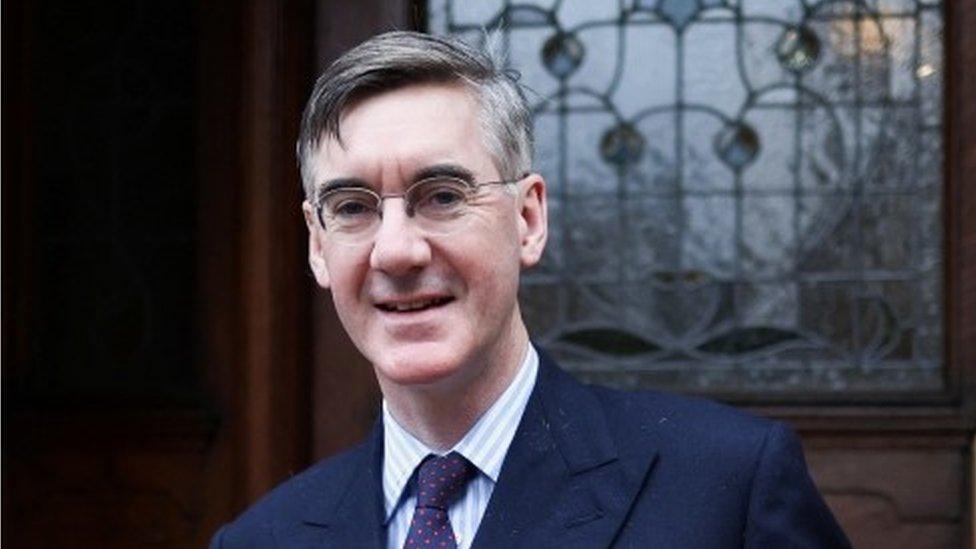Jacob Rees-Mogg's firm seeks to ditch Russian investments
- Published

An investment firm founded and part-owned by cabinet minister Jacob Rees-Mogg has promised to ditch its shareholdings in Russian companies.
Mr Rees-Mogg holds a significant stake in Somerset Capital Management but does not take part in its decisions because he is a government minister.
The investment house had stakes in four firms operating in Russia, according to accounts filed in December.
It has ditched one of those and is in the process of exiting the others.
Companies and public bodies have been under pressure from the government to limit and exit investments in Russia since the invasion of Ukraine.
Mr Rees-Mogg, the minister for Brexit opportunities and government efficiency, still has shareholdings in Somerset Capital Management, according to and continues to receive payouts from it.
He founded Somerset Capital Management in 2007 but became a sleeping shareholder, with no direct involvement in investment decisions, when he became a minister.
The company, which manages investments for institutional clients, had interests in four companies operating in Russia, as of December.
These included Yandex, a Russian search engine seen as the country's answer to Google, and Headhunter, a recruitment company based in Cyprus but operating mainly in Russia.
Rishi Sunak's wife Akshata Murty has shares in Infosys
It also had a large stake in Indian software giant Infosys, which is part-owned by Chancellor Rishi Sunak's wife Akshata Murty.
The company also owned a chunk of Russian natural gas producer Novatek, which it says it has now ditched.
In a statement, it said it had written down its "direct exposure" to Russia to zero and was seeking to exit its shareholding positions "in an orderly manner in due course".
A spokesman said: "Furthermore, we confirm that Somerset will not be making any new investments in Russia. As a global emerging markets equity specialist, most of our portfolios are invested in fast-growing economies including Brazil, South Korea, India and South Africa."
It is not clear how the firm defines "direct exposure".
Labour's deputy leader Angela Rayner said: "Even as the government tells other businesses to pull out of Russia, Tory ministers do the opposite - one rule for them, another for everyone else."
She added: "This sort of behaviour flies in the face of the outpouring of support and solidarity with Ukraine people across our country have shown."
Mr Sunak has faced questions about his wife's shares in Infosys, which was founded by her father, when it emerged the company had kept its Moscow office open.
The chancellor has urged UK companies to sever their ties with Russia to punish Vladimir Putin over its invasion of Ukraine.
In a video message on Twitter earlier this month, he said: "While I recognise that it may be challenging to wind down existing investments, I believe there is no argument for new investment in the Russian economy."
He has insisted he has "nothing to do" with Infosys.
The Indian multinational said it had a "small team of employees based out of Russia" that "services some of our global clients, locally" and "supports and advocates for peace between Russia and Ukraine".
Earlier this week, public bodies in the UK, such as councils and government departments, were urged to look at how they could go further to sever ties to Russia.
Ministers promised legal advice to help public bodies exit contracts voluntarily.